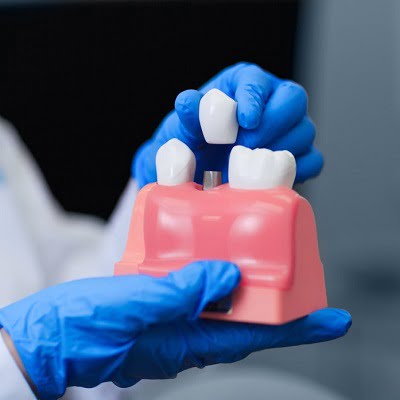
People get Dental Implants In Islamabad to replace missing teeth or to provide support for dentures or bridges. It offers a durable and natural-looking solution for those who have lost one or more teeth due to injury, decay, or other issues.
They can improve the appearance, function, and overall health of the mouth. After that, many people frequently ask that “ When do I get to eat after Dental Implant Surgery?”. It is necessary to talk to your dental surgeon for a proper guide.
In this blog post, you will learn about the basics of dental implant surgery and when you can continue your routine. So, take a moment and read the following details.
What To Expect After Dental Implant Surgery?
It is a complex dental procedure that involves the placement of an artificial tooth root into the jawbone. The implant serves as a stable base for a replacement tooth or bridge. The recovery process after dental implant surgery can vary from person to person, but there are some common experiences you can expect.
Immediately after the surgery, you may experience some discomfort, swelling, and bleeding in the surgical area. Your dentist will provide you with pain medication and antibiotics to help manage these symptoms. You may also need to use an ice pack to reduce swelling and inflammation.
For the first few days after surgery, it is important to avoid hard, crunchy, or sticky foods and to eat a soft, nutritious diet. You should also avoid smoking and drinking alcohol, as these can slow down the healing process and increase the risk of complications.
In the weeks following surgery, you will need to take good care of the surgical site to ensure proper healing. This includes gently brushing and flossing around the implant and avoiding putting pressure on the area.
How To Take Care After The Surgery?
Here are some tips on how to take care of yourself after Dental Implants In Islamabad:
- Take prescribed pain medication and antibiotics as directed.
- Use an ice pack to reduce swelling and inflammation.
- Eat a soft, nutritious diet and avoid hard, crunchy, or sticky foods.
- Avoid smoking and drinking alcohol.
- Gently brush and floss around the implant.
- Avoid putting pressure on the surgical site.
- Attend follow-up appointments with your dentist.
- Report any severe pain or concerning symptoms to your dentist immediately.
When To Start Eating After A Dental Implant?
It’s important to wait for the anaesthesia to wear off after surgery before attempting to eat anything. If you try to eat too soon, you might feel some numbness in your mouth and might unintentionally bite your face or tongue
You can start eating soft foods that don’t need much chewing once the numbness subsides. Soup, yoghurt, mashed potatoes, scrambled eggs, and smoothies are a few examples of soft foods.
To prevent putting pressure on the implant site, it’s important to keep away from meals that are hard, crunchy, or sticky for at least the first week following surgery. When it is safe to resume a regular diet, usually a few weeks after surgery, your dentist will give you detailed advice. It’s necessary to follow these guidelines to guarantee optimal healing and the implant’s success.
The Bottom Line!
It is normal to experience some mild discomfort and sensitivity in the area for a few weeks after surgery, but if you experience severe pain or other concerning symptoms, you should visit SKN Cosmetic Clinic Islamabad. Here they will examine your condition and recommend proper guidance.
Overall, dental implant surgery is a secure and reliable method to replace lost teeth, and with the right aftercare, you may expect to have a fully functional and restored smile.







Book your Appointment